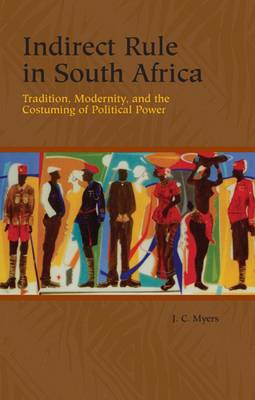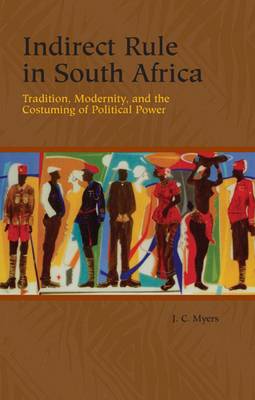
- Afhalen na 1 uur in een winkel met voorraad
- Gratis thuislevering in België vanaf € 30
- Ruim aanbod met 7 miljoen producten
- Afhalen na 1 uur in een winkel met voorraad
- Gratis thuislevering in België vanaf € 30
- Ruim aanbod met 7 miljoen producten
Zoeken
€ 48,45
+ 96 punten
Omschrijving
Indirect rule -- the British colonial policy of employing indigenous tribal chiefs as political intermediaries -- has typically been understood by scholars as little more than an expedient solution to imperial personnel shortages. A reexamination of the history of indirect rule in South Africa reveals it to have been much more: an ideological strategy designed to win legitimacy for colonial officials. Indirect rule became the basic template from which segregation and apartheid emerged during the twentieth century and set the stage for a post-apartheid debate over African political identity and "traditional authority" that continues to shape South African politics today. This new study, based on firsthand field research and archival material only recently made available to scholars, unveils the inner workings of South African segregation. Drawing influence from a range of political theorists including Machiavelli, Marx, Weber, Althusser, and Zizek, Myers develops a groundbreaking understanding of the ways in which leaders struggle to legitimize themselves through the costuming of political power. J. C. Myers is associate professor of political science at California State University, Stanislaus.
Specificaties
Betrokkenen
- Auteur(s):
- Uitgeverij:
Inhoud
- Aantal bladzijden:
- 160
- Taal:
- Engels
- Reeks:
- Reeksnummer:
- nr. 33
Eigenschappen
- Productcode (EAN):
- 9781580463621
- Verschijningsdatum:
- 1/08/2013
- Uitvoering:
- Paperback
- Formaat:
- Trade paperback (VS)
- Afmetingen:
- 152 mm x 229 mm
- Gewicht:
- 240 g

Alleen bij Standaard Boekhandel
+ 96 punten op je klantenkaart van Standaard Boekhandel
Beoordelingen
We publiceren alleen reviews die voldoen aan de voorwaarden voor reviews. Bekijk onze voorwaarden voor reviews.








